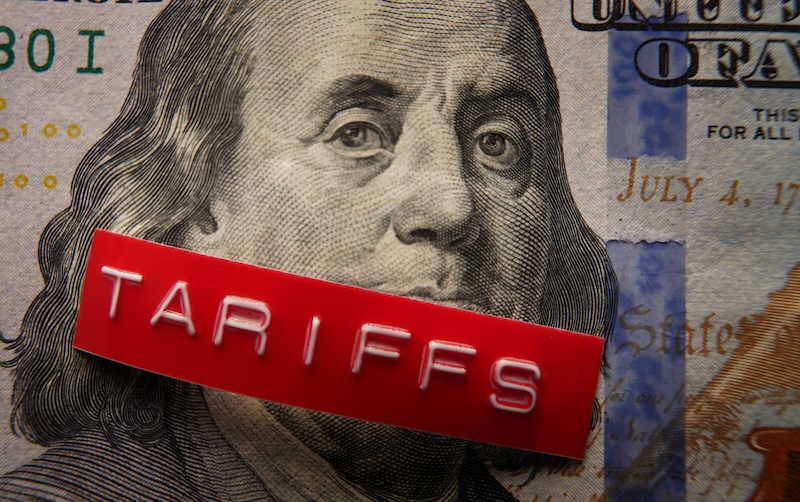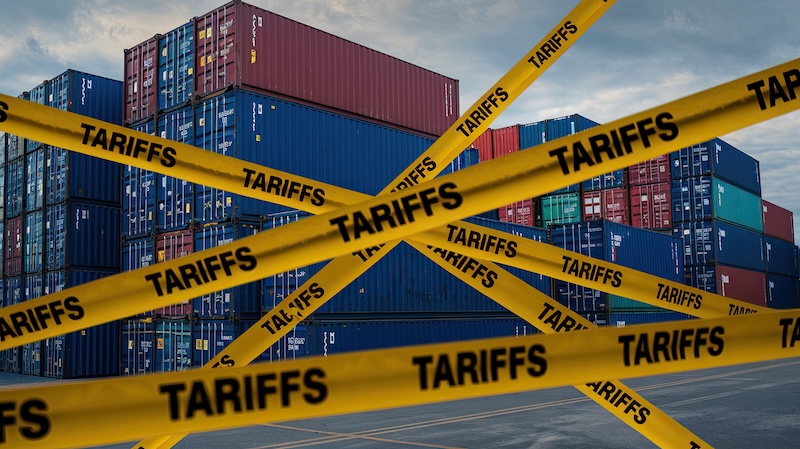Just days after setting a 25% tariff on imports from India, President Donald Trump doubled that duty to punish the nation for buying Russian oil.
In an executive order, Trump said, “I determine that it is necessary and appropriate to impose an additional ad valorem duty on imports of articles of India, which is directly or indirectly importing Russian Federation oil. … Accordingly, and as consistent with applicable law, articles of India imported into the customs territory of the United States shall be subject to an additional ad valorem rate of duty of 25%.”
This move has the potential to significantly impact the home furnishings industry. According to a report from Research and Markets, India has become the world’s fourth-largest furniture market with an estimated $22 billion in value. Teak is native to India, and in recent years, the country has worked to increase production of the wood. India also stands as the world’s second-largest textile producer, for home and apparel fabrics.
The hike comes after the Trump administration set duty rates on imports from a number of countries earlier this week, many of which export furnishings and components for furniture, grills, firepits and more. And retail advocates warn that these new duties could negatively impact small businesses in the United States.
Vietnam, which has become one of the world’s top furnishings producers, will be subject to a 20% tariff, while imports from Malaysia and teak-producing Indonesia will both carry a 19% tariff. The Philippines and Cambodia also are subject to 19% tariffs. Exports from Bangladesh and Taiwan will be subject to a 20% tariff, while those from Turkey will carry a 15% duty.
Last week, the Trump administration also raised tariffs on Canadian goods to 35%, but there’s an exemption for goods that comply with the 2020 United States-Mexico-Canada Agreement negotiated during Trump’s first term. With that exemption, more than 85% of trade between the U.S. and Canada should remain free of additional duties.
Trump set the tariff rate for imports from Mexico at 25%, but announced there would be a 90-day negotiation period before those duties were finalized. Mexico has become a significant producer of furnishings as companies have moved to nearshore in the wake of supply chain disruptions in Asia during the pandemic.
In response to these new tariff rates, the National Retail Federation released a statement criticizing the Trump Administration’s stance on trade, insisting these duties — which are paid by American companies that import from abroad — hurts businesses and consumers in the U.S.
“We encourage the administration to negotiate binding trade agreements that truly open markets by lowering tariffs, not raising them,” said David French, executive vice president of government relations, NRF. “Tariffs are taxes paid by U.S. importers and are eventually passed along to U.S. consumers. These higher tariffs will hurt Americans, including consumers, retailers and their employees, and manufacturers, because the direct result of tariffs will be higher prices, decreased hiring, fewer capital expenditures and slower innovation.”
French said that small businesses will be disproportionately impacted, as they don’t have the resources to absorb significant price increases due to tariffs.
“Retailers have been able to hold the line on pricing so far, but the new tariffs will impact merchandise in the coming weeks,” he said. “We have heard directly from small retailers who are concerned about their ability to stay in business in the face of these unsustainable tariff rates.”








